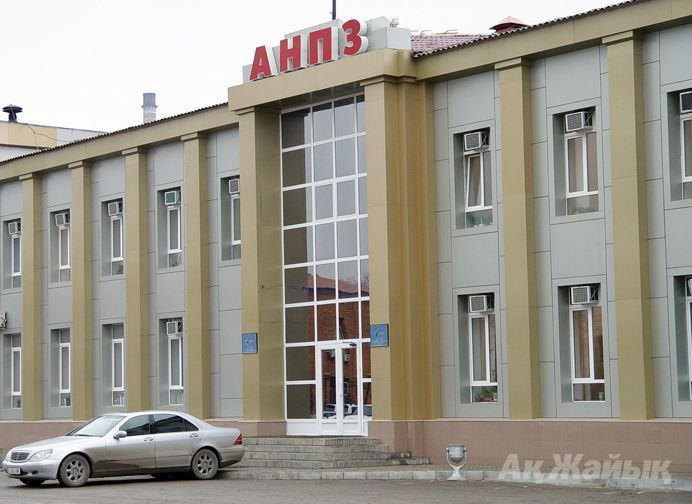 Atyrau Refinery is facing a complex environmental audit, as reported by Yerbol Kuanov, the head of Atyrau Environment Department.
Atyrau Refinery is facing a complex environmental audit, as reported by Yerbol Kuanov, the head of Atyrau Environment Department.
In an interview to Ak Zhaik reporter Mr Kuanov said environmental audit of the refinery has started a week before the sinister night of October 31, when Atyrau got fully caught in a cloud of intolerable smell of oil products.
- Given that ecologists were at the refinery then, they must have fixed the emission using gas detectors. Right?
Kuanov replied that the emission was so obvious that there was no need in gas detectors.
To the question if a relevant environmental damage report was compiled chief ecologist promised it would be in place as soon as the audit ends.
- We are checking the version that ANPZ sometimes receives low quality oil with mercaptane and hydrogen sulfide. We intend to ban the refinery from using cheap and 'dirty' oil, if need be, we may even suspend the plant's operations, said Kuanov.
To recall, in 2006, Kuanov, being the chief lawyer of the environmental department, sealed up railway tank car cleaning and steam washing station of Ak Zhaik, that had been poisoning the entire center of Atyrau with hazardous vapors. Ever since the station remains idle.
During the conversation, the chief ecologist did not exempt the version of another possible source of smell on the night of October 31:
- We have information that Atyrau oil pipelines directorate of KazTransOil national company was cleaning oil reservoirs at the same time.
According to KazGidroMet (Kazakh weather forecast agency), on the night of October 31, a weak-intensity 3-5 m/s south-eastern wind was blowing on the city, i.e. from the direction of Atyrau Refinery.
We also made a touch on a topic of possible heavy discharge at the plant due to recent incident in the furnace of catalytic reforming unit, as the result of which, catalyzate and isomeryzate production units stopped. As well known, fuel isomerization units utilize toxic chemicals.
In 2006, Japanese Marubeni Corporation conducted the first phase of restoration at ANPZ for $360mln. The plant management then boasted of this claiming it allowed reduce sulfur dioxide emission by 38% giving the opportunity to refine highly sulfurous crude to obtain pure sulfur. Within the project a flare device was built with an igniter that sets fire to acid gas as soon as it comes out. So, one shouldn't exempt the possibility that the system leaks gas from all openings, seeing how the whole city nearly suffocated.
Kuanov promised to check this version.
We requested him to check the quality of gas detectors at ANPZ, as when we called Rustem BISSALIYEV, acting chief engineer of ANPZ on October 31, he told there weren't any discharges taking place, citing the meters set in four locations around the refinery.
In early 2010, during the visit of Gabit MUKHAMBETOV, chairman of technical regulation and metrology committee, to Atyrau, Ak Zhaik asked him to check refinery's gas detectors. It turned out the alert limits of H2S meters at H2S and other units had been extremely overrated -- that's why they 'kept silence.'
In July 2010, ANPZ management, by letter, advised Ak Zhaik it had reduced the alert level of the meters lower than maximum permissible concentration.
Who knows if the alert levels were set back into position by now?
By Murat SULTANGALIYEV
 В Атырау -10
В Атырау -10